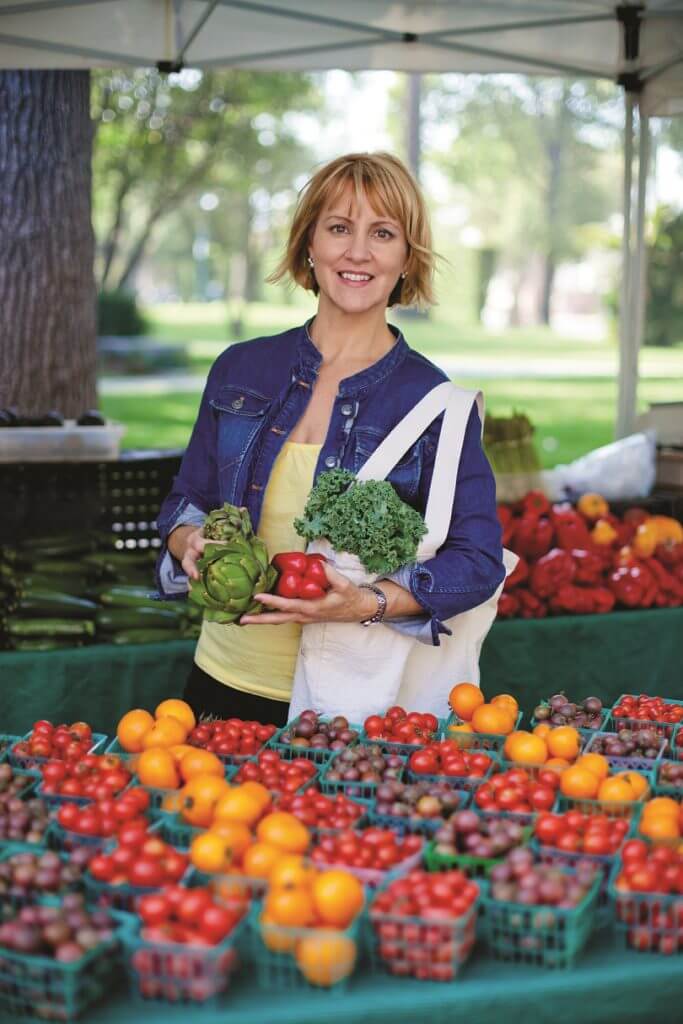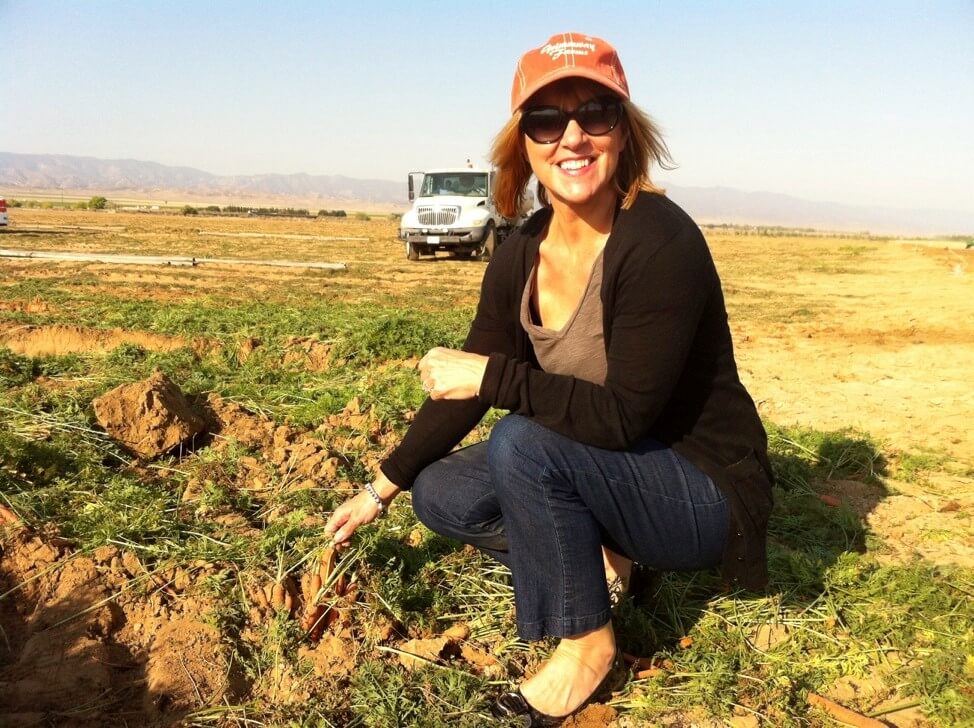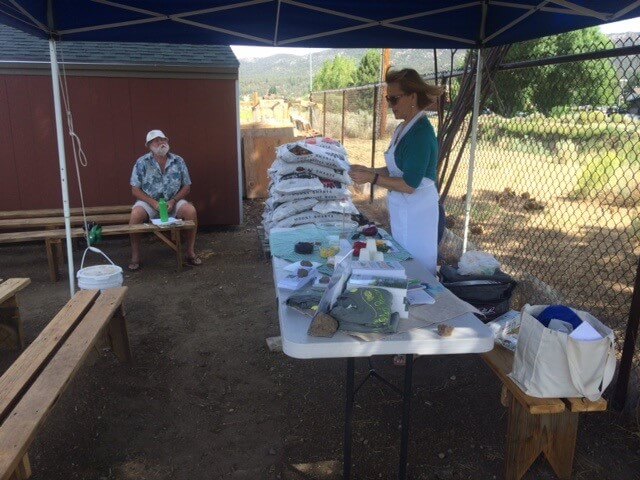For Food Day, Join the Dietitian Food Revolution

I have the distinct privilege of traveling around the country and talking to so many registered dietitian nutritionists about their passions and their life’s work. I’ve heard from so many of you, as you share the amazing efforts you’ve made—many completely voluntary and selfless—in the quest for helping people find a more sustainable, wholesome lifestyle. I’ve talked to dietitians who’ve taken the SNAP challenge to see what it’s like firsthand to live on this limited budget. I’ve met those who have started up farmers markets in their hospitals. And I’ve heard stories about dietitians hosting free nutrition classes in schools, supermarkets and farmers markets. There is so much work to be done and, in my opinion, registered dietitian nutritionists have the most passionate, educated voices for moving the planet towards optimal health. We, as a profession, have the background, patience, knowledge, and inspiration to help guide people towards eating a diet that promotes a healthy, vibrant life, cuts disease risk and healthcare costs, provides ultimate fulfillment and satisfaction, and lowers impact on the environment.
We know that what you put on your fork is a valiant weapon against chronic disease. It’s become crystal clear that diets based on whole plant foods can help prevent and even reverse some of the top “killer” diseases in the Western world. Studies suggest that an array of plant-based foods, such as beans, seeds, whole grains, fruits and vegetables, have the potential for preventing or slowing down chronic disease, such as cardiovascular disease, cancer, diabetes, hypertension, and neurodegenerative disease. And this diet has even more benefits, because it is a sustainable eating style. With a growing global population, the planet is now pressured to provide enough water, plant nutrients, space, and ideal climate to produce more food. Environmental data are rapidly accumulating on the unsustainability of the current worldwide food consumption, which is increasingly industrialized and moving away from simple plant foods. Because the population is expected to grow to over 9 billion by 2050, according to the United States Census Bureau, food security and food sustainability are on a collision course.

We, as dietitian nutritionists, can encourage people to move from a low-nutrient diet, which does little to nourish bodies and robs important resources from our agricultural system. A study completed on Americans ages 2 years old and older concluded that 39 percent of children and teens and 42 percent of adults consumed no whole grains at all. Yet whole grains provide essential fiber, which is important for gastrointestinal and heart health. A study by Quinnipiac University and the Centers for Disease Control and Prevention found that only 38 percent of adults eat nuts and seeds each day, yet these foods provide great natural sources of vitamins, minerals, protein, healthy fats, and fiber. Beans provide excellent fiber and protein, however researchers looked at five different cohorts in Japan, Sweden, Greece, and Australia, finding that of all the food factors they looked at, only one was associated with a longer lifespan across the board: legume intake.
Fruits and vegetables get the short end of the stick when it comes to the average diet, because they are the least eaten food groups. An analysis done by the Centers for Disease Control and Prevention (CDC) concluded that only 13.1% of American adults eat enough fruits and only 8.9% eat enough vegetables. California ranks highest in consumption of both fruits (17.7% of adults) and vegetables (13%), while at the bottom of the list are Tennessee for fruit consumption (7.5%) and Mississippi for vegetable consumption (5.5%).
It’s time that we, as a profession, educate our communities, as well as activate plans to help individuals increase their awareness and intake of local, sustainable, whole plant foods so that collectively we can get healthy. I am calling all registered dietitian nutritionists to make their mark and share their stories by joining my Facebook Page at Sharon Palmer, The Plant-Powered Dietitian, and let’s share stories to inspire each other every day!

Here are some examples of what you can do to make a difference.
- Teaching parents how to incorporate healthy, whole plant foods into their kid’s meals
- Working with farmers markets to provide nutritional education
- Volunteering at senior centers or schools to provide education on local, sustainable, healthy, whole plant foods
- Teaching gardening in your community
- Hosting free cooking demos healthy, whole plant foods
- Writing an aritlce in your local newspaper on sustainable, seasonal plants.
Today is Food Day, so it’s the perfect time to celebrate by joining the revolution. Like my Facebook Page today, and post your stories, pictures, and messages to inspire us all.

For more ideas on how to create a food revolution, check out these blogs:
How You Can Create a Locavore Dinner
Farm-To-Table Nutrition Education
Top 11 Tips for Sustainable Eating
Written by Sharon Palmer, MSFS, RDN on October 24, 2016; updated February 18, 2020
References:
Sabate J and Soret S. Sustainability of plant-based diets: back to the future. Am J Clin Nutr , 2014; 100(Supplement 1) 476S-482S.
Most Americans don’t eat enough whole grains, fiber: study. https://www.cbsnews.com/news/most-americans-dont-eat-enough-whole-grains-fiber-study/. Accessed October 21, 2016.
US Census Bureau. https://www.census.gov/population/international/data/idb/worldpoptotal.php. Accessed October 21, 2016.
Eat Beans to Live Longer. Nutrition Facts. https://nutritionfacts.org/2014/09/16/eat-beans-to-live-longer/. Accessed October 21, 2016.
Paddock, C. Americans ‘not eating enough fruits and vegetables. Medical News Today website. https://www.medicalnewstoday.com/articles/296677.php. Accessed October 4, 2016
Miller, S. Which States Are Eating Their Fruits and Veggies? Live Science website. https://www.livescience.com/53074-maps-whos-eating-fruits-veg.html. Accessed October 4, 2016.
Nutrients and Health Benefits. Choose My Plate website. https://www.choosemyplate.gov/vegetables-nutrients-health. Accessed October 4, 2016.


